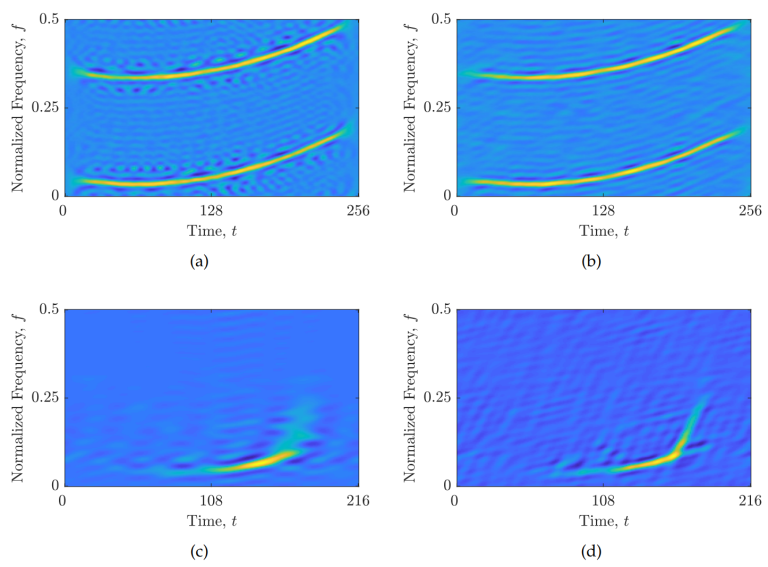
Compressive sensing (CS) of the signal ambiguity function (AF) and enforcing the sparsity constraint on the resulting signal time-frequency distribution (TFD) has been shown to be an efficient method for time-frequency signal processing. This paper proposes a method for adaptive CS-AF area selection, which extracts the magnitude-significant AF samples through a clustering approach using the density-based spatial clustering algorithm. Moreover, an appropriate criterion for the performance of the method is formalized, i.e., component concentration and preservation, as well as interference suppression, are measured utilizing the information obtained from the short-term and the narrow-band Rényi entropies, while component connectivity is evaluated using the number of regions with continuously-connected samples. The CS-AF area selection and reconstruction algorithm parameters are optimized using an automatic multi- objective meta-heuristic optimization method, minimizing the here-proposed combination of measures as objective functions. Consistent improvement in CS-AF area selection and TFD reconstruction performance has been achieved without requiring a priori knowledge of the input signal for multiple reconstruction algorithms. This was demonstrated for both noisy synthetic and real-life signals.